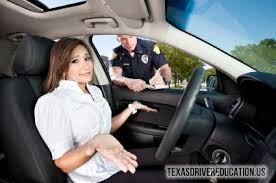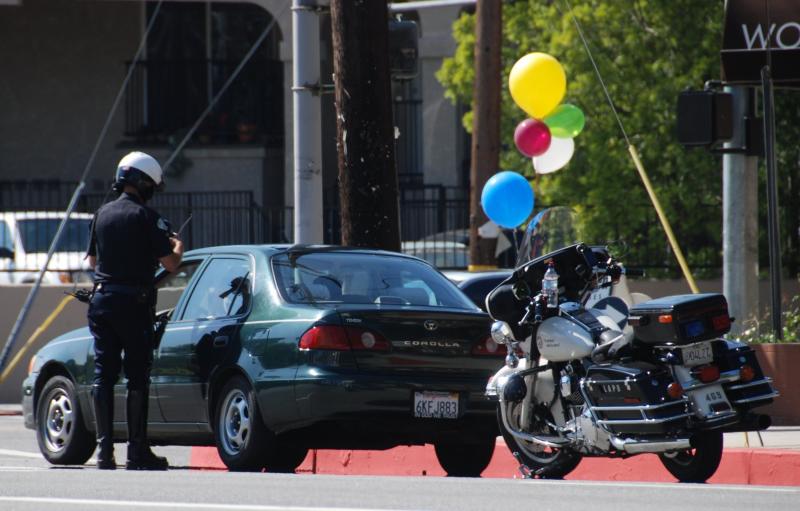Great article on Driving While License Revoked
http://criminaljustice.ncbar.org/newsletters/criminaljusticefeb11/licenserevoked

Driving While License Revoked
Article Date: Wednesday, February 09, 2011
Written By: Jeff Nieman
We need to take another look at the most serious criminal offense in our State, Driving While License Revoked. Perhaps not serious in the traditional sense, but I would contend it’s the most serious because arguably we expend more time and resources enforcing, arresting, prosecuting, defending, probationing and imprisoning offenders of this crime than any other on the books. Some license revocations are the result of overt actions. The most common of these actions are Driving While Impaired, a serious speeding offense or multiple minor speeding offenses. Less frequently, The Division of Motor Vehicles suspends the license of those who drop out of high school, steal gasoline or fail to cover the cost of a traffic collision. However, a vast majority of license revocations are the result of inaction, i.e. failure to appear and/or pay the costs associated with a traffic violation. These types of revocations are the focus of this writing.
Twenty-five years ago, if someone failed to come to court on any type of traffic ticket, a warrant for his or her arrest was issued, it was served by the sheriff and she was compelled to appear in court. Understandably, this system was viewed by many as too burdensome, in part because the sheriffs’ departments were saddled with arresting all of these people, including Granny who didn’t show up for her stop sign ticket. However, equally understandably, the State was concerned that it would lose costs of court revenue unless there was some mechanism by which it could compel folks to answer to their traffic violations and pay. In 1986, the legislature enacted NCGS §20-24.1, which allowed for a process by which the DMV could revoke the driver’s license of anyone who failed to appear for or pay fines associated with traffic violations. The idea being that once someone got notice from the DMV that their license would be suspended unless he handled his ticket, he would rush to the courthouse and pay his fines and court costs to avoid this serious sanction of license revocation. At the very least, the next time he went to renew his license and was denied, he would take quick action and pay any monies due. In many cases, that is exactly what happens. However, money is an issue for most of the folks in this situation, they cannot afford to get off work, or hire a lawyer, and the cost of traffic violations has sky-rocketed. Since 2005, court costs have increased by over 40%, while late fees have exploded by 400%. It’s easy to see why. Our state is in a fiscal crisis and when faced with the choice of increasing taxes on everyone versus jacking up fines on speeders and to a greater extent those who don’t show up for their violations, the choice is fairly simple. However, this does not change the fact that paying a $300-$400 ticket is a heavy burden to anyone, especially the poor.
Unfortunately, many of these people do not handle the ticket and their licenses become indefinitely suspended. And yes, almost all of them continue to drive. We can’t ignore that most of our state is rural or suburban without a comprehensive public transportation system. For a working person with a family in New York or Washington DC, driving a motor vehicle might afford him or her some additional freedom of mobility. In North Carolina, for almost anyone, it is seen as a necessity. Eventually these revoked drivers are going to get caught and charged with DWLR and the cycle begins. Most of us who work in criminal courts have seen these folks and often by the time they do finally come to court, voluntarily or otherwise, they have accumulated multiple charges in multiple counties. Without a healthy dose of legal maneuvering, judicial grace and luck, they will never be licensed to drive. They’ll be in and out of court, on and off probation, and probably spend a few stretches in the custody of the state throughout their lives. I have spoken with more than one person who helped craft §20-24.1, and they agree that this was a completely unintended consequence of creating the indefinite suspension for failing to appear.
One of them, former District Attorney and Superior Court Judge Wade Barber of Chatham County recalls a specific case of someone in this position. Let’s call him “George”. Judge Barber was sentencing George for a charge of DWLR. George was a low wage construction worker living in rural Alamance County struggling to support his wife and young children. He had never done anything to harm or endanger anyone, except that once he had been cited for a minor speeding infraction which he failed to pay. As a result, his license was suspended and before long, local law enforcement was well-aware of his license status. George kept driving as he must to work and care for his family. The local police kept a lookout for him and stopped him often for DWLR, and then for driving while license permanently revoked, but never for violating the rules of the road. George did not have the money, education or understanding to get his DMV revocation problem resolved. The facts in this case were uncontroverted that George was driving home from the pharmacy with medicine for one of his children. At that time, the law required a minimum active prison sentence for driving while license permanently revoked. After being sentenced to prison, George asked the judge two questions. First, “will I be able to get my license after I have served my sentence?” The answer was “no.” Then, “Your Honor, how much time would I have to serve to get my license back?” Of course, the judge replied that no amount of time would achieve this. The only way that he could ever lawfully drive again would be to hire a lawyer (the court could not appoint one), pay fines and court costs and get special relief from prosecutors and judges. Obviously, not all people in this circumstance are as sympathetic as George, but most are there because they lack the money, sophistication or discipline to deal with DMV revocations. This highlights a systemic problem.
Many reading this will say that they have little to no sympathy, even for George. He got a speeding ticket and he blew it off. Even if he ignored his mail and was unaware that his license was revoked at first, he certainly knew the first time he got charged with DWLR. Despite this, he kept driving, ignoring the law, and picked up more charges. We are a society of laws. He knowingly violated this law several times. Violating the law has consequences and repeated violations of the law usually results in the offender going to jail. This is a perfectly reasonable stance to take here. So for now, let’s ignore any concern we might have for the individuals in this position and take a look at the burden that they collectively put on our system of criminal justice.
In 2009, 1131 different crimes were charged in North Carolina in a total of 2,474,308 cases. A “case” refers to a file number and up to three charges can be brought under the same file. Driving While License Revoked appeared as one of the charges in 189,353 of the cases or about 8% of the total, ranking third among all crimes. Speeding and Expired Registration were first and second, respectively. However, the amount of court time per case to adjudicate speeding and registration charges is miniscule compared to DWLR. Court-appointed counsel is almost never assigned in the first two matters. Probation or jail time is even rarer. In fact, of the seven most frequently charged crimes, DWLR is the only one that commands an appreciable amount of criminal justice system resources. Driving While Impaired is number 8, followed by Misdemeanor Larceny. It’s worth considering how much more attention could be paid to these two along with assaults, robberies and murders, if we could pare down the number of DWLR cases on our dockets.
Recognizing this as a problem, many in the criminal defense bar include “driver’s license restoration” as an area of their practice. This is laudable work, to be sure, but much of what is actually being done in these cases is also troubling because it creates what Professor Jim Drennan of the UNC School of Government calls, “an incentive to lie.” Motions for Appropriate Relief and dating orders nunc pro tunc create troublesome legal fictions in order to shoehorn a person back into licensure. This is not to say that attorneys or judges who employ these tactics are inherently wrong for doing so. They are simply finding a way to give a person who may be deserving a chance at being lawfully licensed. Do we need to have a system that requires this?
In 2007, the legislature also took action to address this problem by enacting NCGS §20-20.1, allowing for limited driving privileges for persons revoked for DWLR or other moving violations while revoked. In short, a person with one-year, two-year or permanent revocations can get a limited driving privilege after 90 days, one year or two years respectively, provided they have no indefinite revocations or pending charges. This was a positive move forward because it actually created an incentive for some to come to court and handle their matters.
Perhaps the General Assembly will consider another step, revising NCGS §20-28(a) by removing the mandatory revocation for a conviction of Driving While License Revoked, and make DWLR a non-moving violation. For those that truly are flaunting the law and speeding or otherwise driving unsafely while revoked, they can still be prosecuted and convicted of the companion charge and be revoked under NCGS §20-28.1, for a moving violation while in a state of revocation. If the driver generally has a dangerous history, the court can order as a condition of probation that the defendant surrender his license and not drive. Of course, appropriate punishment and deterrence is a big concern. This change would not, in any way, preclude someone being held accountable for driving while revoked. DWLR would still be a Class 1 misdemeanor punishable by fines and up to four months in prison. However, you can tell George, once you’ve done your time and paid your debt, you can get a driver’s license and start over.
This is just one suggestion. I’m sure there are others. But the most important thing is that we have a conversation about this problem. Whether you’re actually concerned about the livelihood and productivity of the “George(s)” in this state, we need to do something to reduce the amount of time we’re spending in court with them, in order to keep more of our focus on those doing the hitting and stealing.
Jeff Nieman is an assistant district attorney in Hillsborough and co-founder of the North Carolina Driver’s License Restoration Project. He can be reached for comment at Jeffrey.L.Nieman@gmail.com.
Views and opinions expressed in articles published herein are the authors' only and are not to be attributed to this newsletter, the section, or the NCBA unless expressly stated. Authors are responsible for the accuracy of all citations and quotations.



